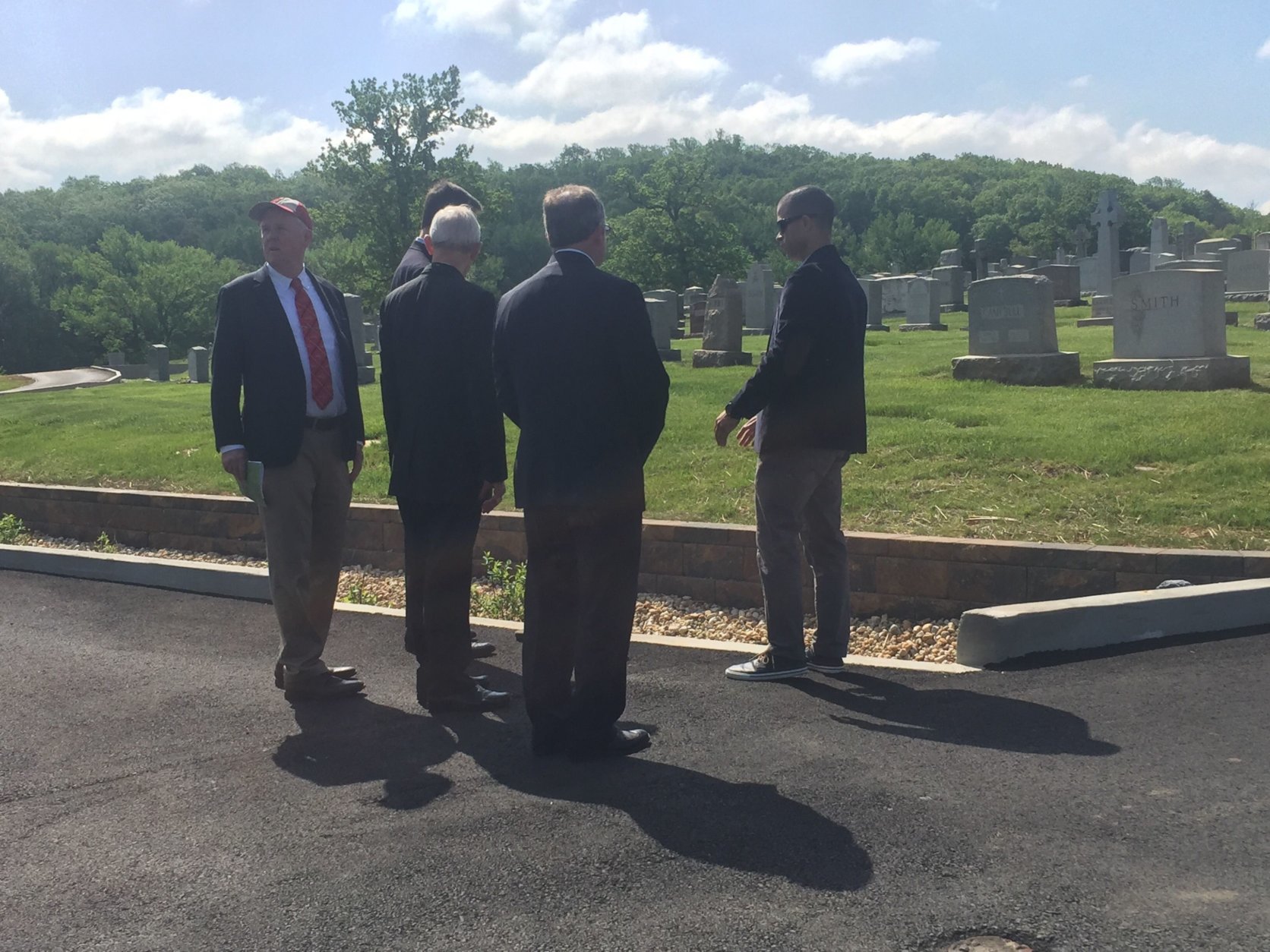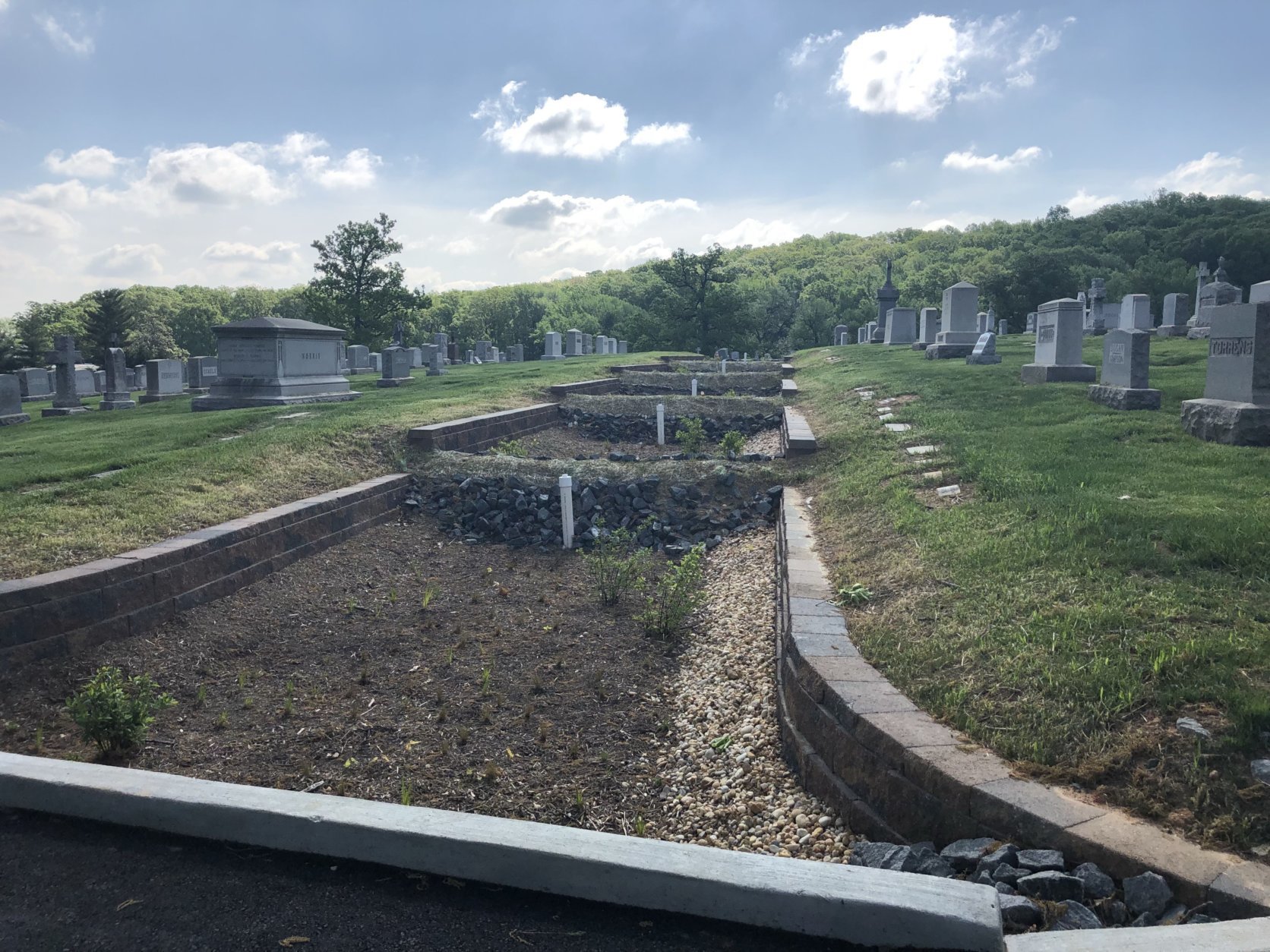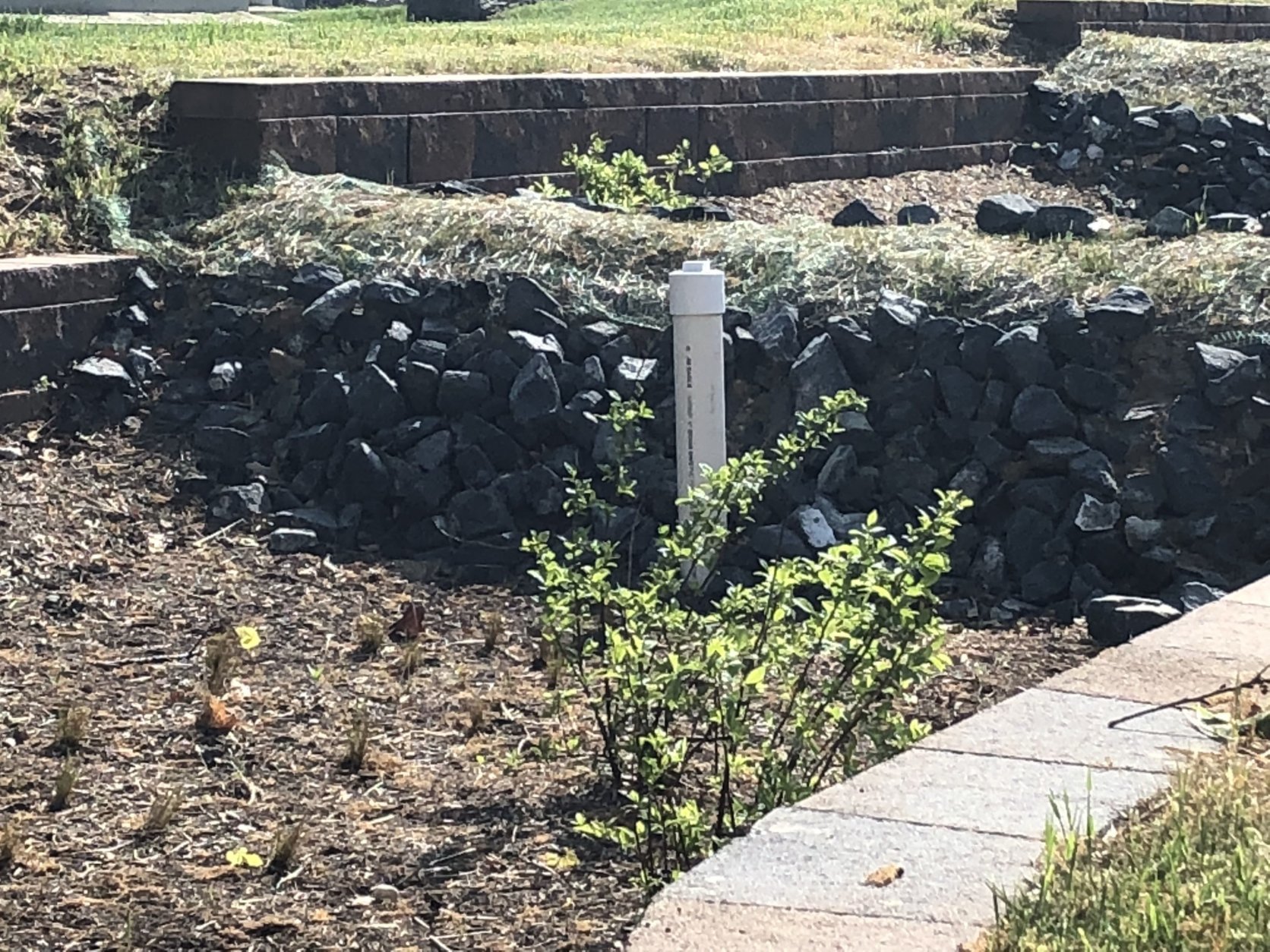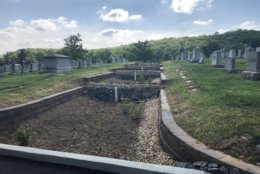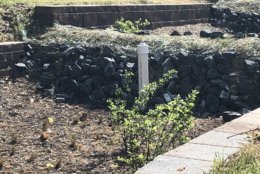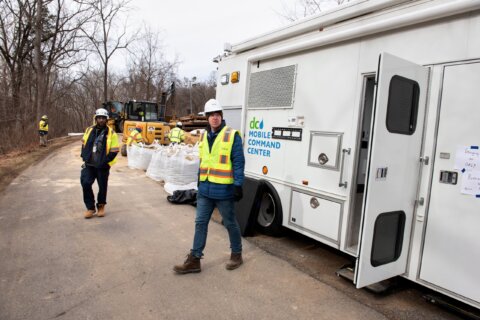WASHINGTON — The historic Mount Olivet Cemetery in Northeast D.C. is taking a unique approach to addressing pollution. For the first time, the Roman Catholic Archdiocese of Washington is partnering with the Nature Conservancy to create rain gardens to retain stormwater and combat runoff pollution.
Paved roads are one of the largest contributors of pollution to the Chesapeake Bay, and Mount Olivet, built in 1858, had about 10 acres of them.
Kahlil Kettering, the Nature Conservancy’s urban program manager, said they’ve taken out some of the paved surface and put in a nature-based solution to address the problem — rain gardens composed of native plant species. It’s the first time science and technology is being used at a cemetery to take on pollution.
Cheryl Tyiska, the manager at Mount Olivet, said, “We did not have any idea that we were contributing to pollution in the Anacostia River. It does take a little bit of getting used to, but once you realize the technology under the ground, it’s amazing.”
The project generates credits that the cemetery can sell through the District’s Stormwater Retention Credits program.
